A clamp meter is a multimeter used to measure voltage without having to make direct contact with the wires. A clamp meter is ideal for measuring voltage in difficult-to-reach or dangerous areas. In this blog post, we will learn how to use a digital clamp meter to measure voltage. We'll also explain what the different readings mean, so you can be sure that you're getting accurate measurements.
What is voltage?
In electrical engineering, voltage is the difference in electric potential energy between two points per unit charge. The voltage between two points is equal to the work done per unit charge against a static electric field to move the charge between two points. In this sense, voltage is a measure of potential energy that exists between two conductors.
How to use a digital clamp meter to measure voltage?
There are many ways to measure voltage, but one of the most popular and effective ways is to use a digital clamp meter. A digital clamp meter is a type of electrical tester that is used to measure the voltage in a circuit. It works by clamping onto a wire or other conductor and measuring the voltage between the two points.
To use a digital clamp meter, first, make sure that the power is turned off to the circuit you will be testing. Then, open up the jaws of the clamp meter and position them around the conductor you wish to test. Once the jaws are in place, close them tightly so that they make good contact with the conductor.
Now, turn on the power to the circuit and take a reading from the digital display on the clamp meter. The reading will tell you the voltage between the two points that the jaws are clamped onto. If the reading is too high or too low, you may need to adjust the jaws of the clamp meter to get a more accurate reading.
When you're finished taking measurements, be sure to turn off the power to the circuit and disconnect the clamp meter before moving on to another task.

Tips for using your digital clamp meter to get the most precise readings:
- Make sure the jaws of the clamp are clean and free of debris before taking a measurement.
- Open the jaws of the clamp around the conductor you wish to measure, and ensure that the conductor is fully seated in the V-shaped notches at the bottom of the jaws.
- Be sure to hold the clamp meter level when taking a reading, as tilting it can provide inaccurate results.
- When taking AC current measurements, try to keep the conductor within the middle third of the jaws, as this will give you the most accurate reading.
- If you're measuring DC current, be sure to zero out your meter before taking the measurement. This can be done by touching the conductor with the tips of the jaws while the meter is turned off.
- Always take multiple readings and average them out to get the most accurate result.
following these simple tips will help you get the most precise readings from your digital clamp meter. With a little practice, you'll be taking accurate measurements in no time!
Common mistakes people make when using a digital clamp meter
- Not properly calibrating the device: This is one of the most common mistakes people make when using a digital clamp meter. Without proper calibration, the readings taken by the device will not be accurate, which can lead to incorrect decision-making.
- Not reading the manual: The digital clamp meter comes with a manual that contains all the information you need to know about the device. Not reading the manual before using the device is a mistake as it can lead to not understanding how to use the device correctly.
- Not using the right mode: There are different modes that can be used when taking measurements with a digital clamp meter. Not using the correct mode for the measurement you are trying to take is a mistake as it can lead to inaccurate readings.
- Taking measurements in an area with high EMF: Electromagnetic fields can interfere with the readings taken by a digital clamp meter. If you are taking measurements in an area with high EMF, it is important to use shielding to avoid interference.
- Not properly storing the device: When not in use, it is important to store the digital clamp meter in a safe place. Not properly storing the device can lead to damage and incorrect readings when you do use it again.
Frequently Asked Questions:
What is a clamp meter?
A clamp meter is an electrical testing device that is used to measure the current in a wire without having to make direct contact with the live wire. This type of meter is very useful in situations where it would be difficult or dangerous to access the live wire.
To use a clamp meter, the jaws of the clamp must be placed around the conductor that you want to measure. The reading on the clamp meter will tell you the amount of current flowing through the conductor.
Clamp meters are an essential tool for electricians and other professionals who work with electrical systems. They are safe and easy to use, and they can provide accurate readings even in difficult situations.
Do clamp meters work on DC?
Clamp meters are one of the most versatile and useful pieces of test equipment for electrical engineers and technicians. But what about DC? Can clamp meters measure DC current?
The answer is yes, but there are a few things to keep in mind. First, most clamp meters are designed for AC current measurement, so they may not be as accurate when measuring DC current. Second, many clamp meters have a maximum current rating that is much lower for DC than for AC. So if you're planning on measuring high currents with a clamp meter, make sure it is rated for DC measurements.
Finally, some clamp meters have a "peak hold" feature that captures the highest current value measured over a short period of time. This can be useful for measuring spikes or transients in DC current, but it's important to remember that the peak hold value may not be the actual DC current value. If you need to measure DC current with a clamp meter, make sure to keep these things in mind to get the most accurate measurements possible.
How accurate are digital clamp meters?
Digital clamp meters are a type of multimeter that is used to measure current. They are a popular choice for electrical testing and troubleshooting because they are easy to use and relatively inexpensive. While digital clamp meters are generally accurate, there are some factors that can affect their accuracy.
The most important factor in determining the accuracy of a digital clamp meter is the quality of the sensors. The sensors are what "clamp" onto the conductor in order to measure the current. If the sensors are not calibrated properly, the reading will not be accurate. In addition, if the sensors are not made from high-quality materials, they can degrade over time and also produce inaccurate readings.
Another factor that can affect the accuracy of digital clamp meters is the way in which they are used. If the meter is not positioned correctly on the conductor, the reading will not be accurate. In addition, if the user does not hold the meter steady while taking a reading, this can also lead to inaccurate results.
Digital clamp meters are generally considered to be quite accurate. However, there are some factors that can affect their accuracy. By taking care to use the meter properly and selecting a high-quality product, you can ensure that your digital clamp meter provides accurate readings.

Conclusion:
In conclusion, a digital clamp meter is a versatile and essential tool for any electrician or engineer. By following the above steps, you can easily and accurately measure voltage using a digital clamp meter.
If you found this article helpful, please share it with your friends or colleagues. Also, feel free to leave us a comment below if you have any questions or suggestions. Thanks for reading!

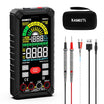
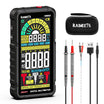
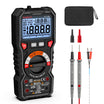
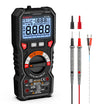
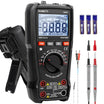
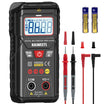
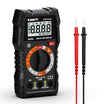
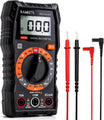
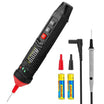
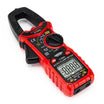
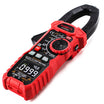
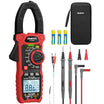
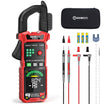
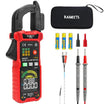
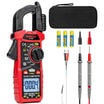

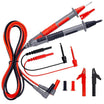
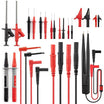
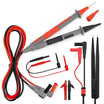
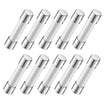
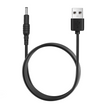
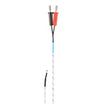
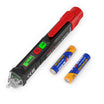
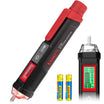
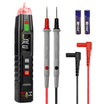
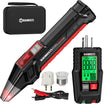
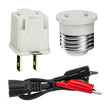
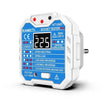
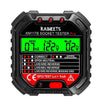
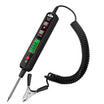
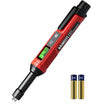
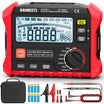
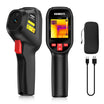
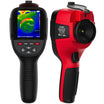
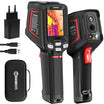
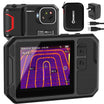
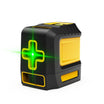
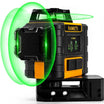
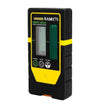
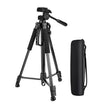
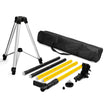
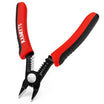
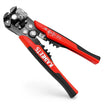
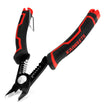
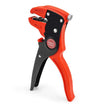
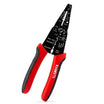
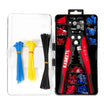
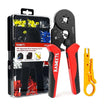
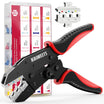
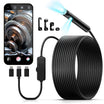
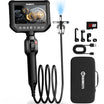
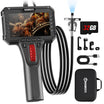
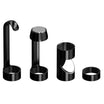
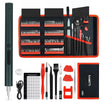
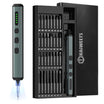
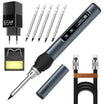
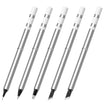
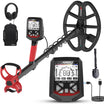
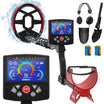
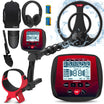
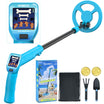
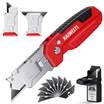
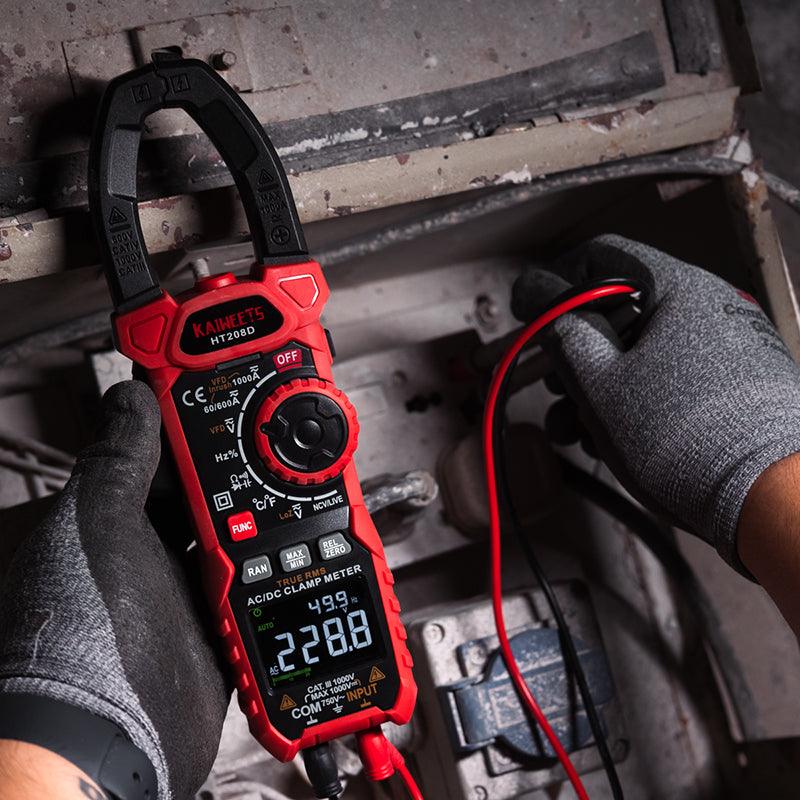
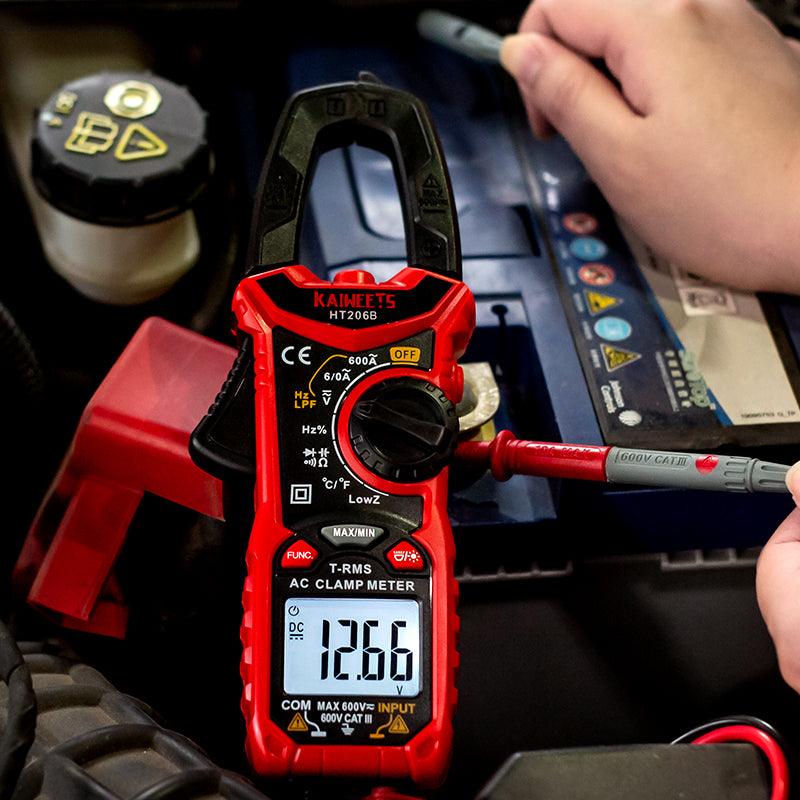
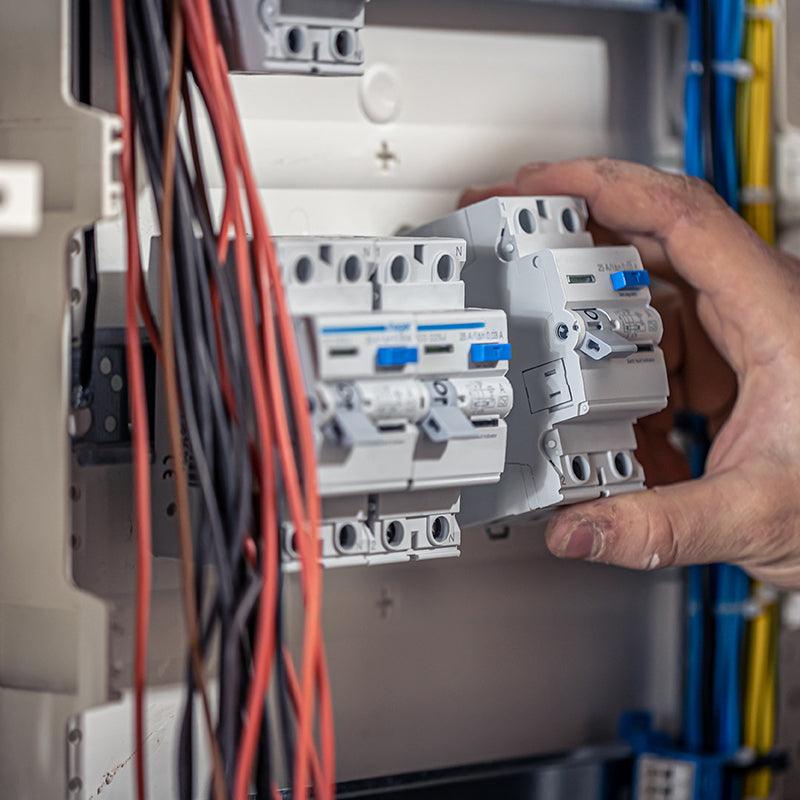
Commenta
Nota che i commenti devono essere approvati prima di essere pubblicati.
Questo sito è protetto da hCaptcha e applica le Norme sulla privacy e i Termini di servizio di hCaptcha.